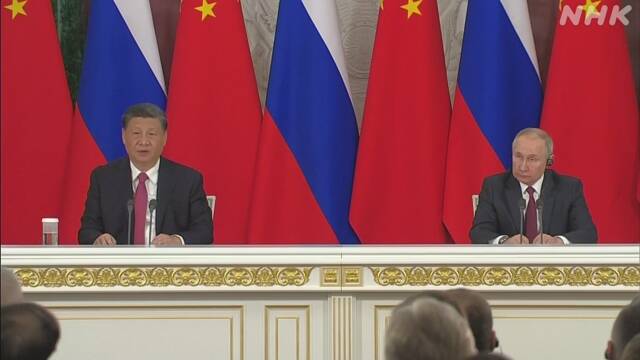A summit meeting between Chinese President Xi Jinping and Russian President Vladimir Putin was held on the 21st, demonstrating the close relationship between the two countries.
While the joint statement after the meeting did not present a concrete solution to the situation in Ukraine, they strongly rebuked the United States, which is deepening its confrontation with both countries.
The summit meeting between Chinese President Xi Jinping and President Putin, who is visiting Russia, was held at the Kremlin in the capital Moscow on May 21, with the participation of key ministers from both countries.
After the meeting, a joint statement was issued in which the two countries boasted about their close relationship, stating that "the relationship between the two countries has reached the highest level in history and is growing steadily."
On the other hand, regarding the situation in Ukraine, he stressed that "responsible dialogue is the best way to find a sustainable solution to the crisis, and the international community should support constructive efforts in this regard," but no concrete solution was presented.
At a joint press conference, Putin expressed support for China's position of dialogue and ceasefire, saying, "If the West and Ukraine are ready, it can be the basis for a peaceful solution, but such an approach is not seen so far. We have reined in the West's increasing military support for Ukraine.
In response, President Xi repeatedly asserted China's position on the situation in Ukraine, saying, "China has consistently maintained an objective and fair position and actively promoted peace negotiations."
"I hope that we will continue to maintain close communication with President Putin through various methods and lead together to the stable and long-term development of bilateral relations," he said, expressing his desire to further strengthen cooperation with Russia.
On the other hand, there was no specific mention of military assistance from China to Russia, which is of concern to the United States and others.
In addition, the joint statement strongly rebuked the United States, which is deepening its confrontation, stating, "The two countries will pay attention to the negative impact of the U.S. Indo-Pacific strategy based on Cold War thinking on peace and stability in this region," bearing in mind the situation surrounding Taiwan and other issues.

